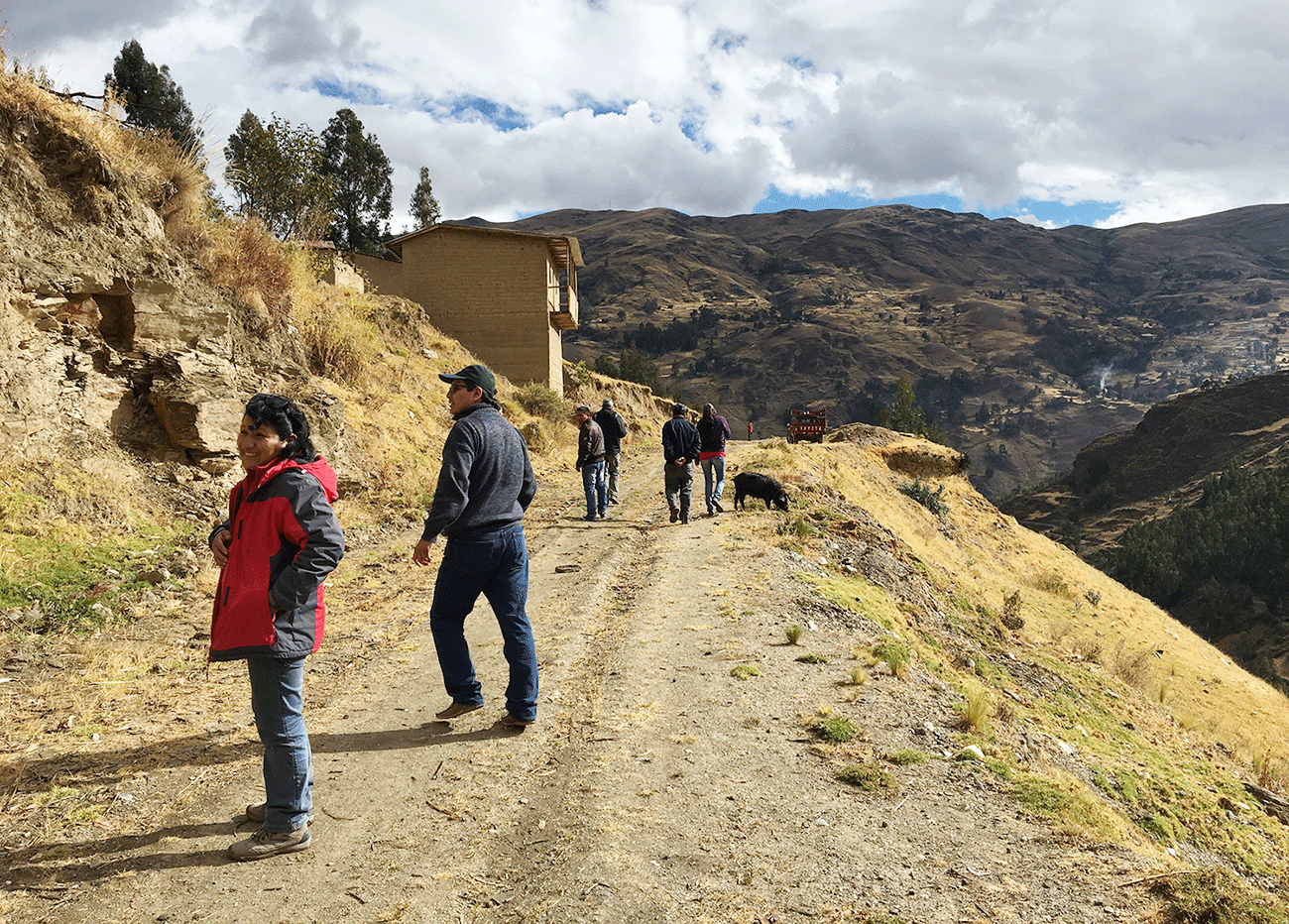The Longitudinal road project in Peru reveals both the challenges of conducting consultations with indigenous populations, and the opportunities such consultations offer for improving projects. Located in an area with a predominantly Quechua indigenous population, the road passes through 25 “Comunidades Campesinas” (peasant communities). While the road brings important benefits to these communities, and initial public consultations revealed overwhelming support among local people for the project, its construction also causes significant impacts by resettling at least 400 homes. Given the scale of resettlement, both the IDB’s Involuntary Resettlement Policy and its Indigenous Peoples Policy required the project to reach formal agreements with affected communities before Bank approval.
The Comunidades Campesinas are a traditional form of social organization of the Andes. Land is mostly owned collectively. While the communities are led by a directive council whose members are rotated every two years, the authorities’ power is limited. All important decisions are taken by the community at large on a consensus basis through so-called general assemblies. These communities are characterized by strong social cohesion and territorial control, which makes obtaining their support indispensable for a project like Longitudinal. To respect traditional decision-making processes, the Bank required the project to conduct consultations of its resettlement plan in each of the affected communities separately, and to obtain agreements that were reflected through “actas” (minutes) of their general assemblies. Achieving this in 25 communities was a particularly challenging task.
When the Bank became involved in the project, estimates put the required resettlement at 1,300 homes. In addition, these homes would only receive monetary compensation. Given the rugged terrain in the project area, many families would have been unable to reestablish their homes in their communities. Consultations of the initial resettlement plan had revealed that the affected people were concerned about the risk of having to move elsewhere.
A first crucial step towards obtaining agreements was to adjust the road design and to improve the resettlement process. As a result, the number of homes to be resettled was reduced to 520, with a potential further reduction to 400 through the construction of by-passes around densely populated areas. Moreover, additional resettlement measures ensure that affected families can stay within their communities and avoid serious disruption to social ties and livelihoods. These measures include building new homes for affected families, and making new areas suitable for building houses where land is scarce.
Once the enhanced resettlement plan was drafted, the project implemented a new two-step consultation process. First, preliminary meetings were held with the directive councils of the communities to present the improvements to the resettlement process and to prepare for the general assemblies. Then, parallel consultation teams held the general assemblies in all communities during an intense three-week period. The IDB and the borrower agreed beforehand on the agreements and the presentations given to the general assemblies to ensure they would meet the safeguards policies’ requirements. While Spanish is the main language during community meetings, a Quechua translator was present to facilitate full understanding by all community members, including women and the elderly. These efforts resulted in 24 of 25 communities signing actas expressing their agreement. In the remaining community, a change of authorities meant that a preliminary agreement will only be ratified by general assembly early in 2017. Obtaining this final agreement is a condition to be met before the Bank will start disbursing funds.
Conducting consultations as a reiterative process and using its outcomes to improve the project were key factors in obtaining agreements. This also means that consultations do not end there: the resettlement plan includes a series of measures to ensure continued participation of affected communities during the entire resettlement process.
Read this story and other examples of our sustainability efforts in the IDB’s 2016 Sustainability Report.
Related link (Spanish):
Blog de cambio climático y sostenibilidad: ¿Por qué debería importarme el desarrollo sostenible?


Leave a Reply